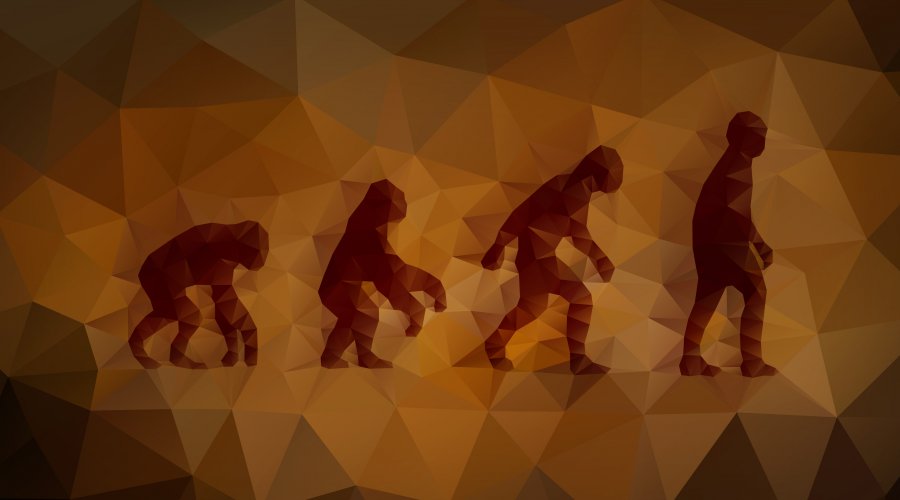Even people who do not support the status quo, or uphold the Western notion of progress, believe that “humanity is walking a positive evolutionary path.” Why is that? Is it because they believe, consciously or subconsciously, that to face the truth is to resign to it?
Humanity is on a downward spiral, and our regression as humans directly proportional to man’s decimation of the Earth (and inversely proportional to scientific and technological growth).
There is a way ahead, though it’s more radical than “thought leaders” are willing to consider. The belief in progress is blocking the path to genuine human advancement.
The idea of progress didn’t begin during the so-called Enlightenment, but it was encoded and enshrined during it. Philosophers like Kant, Voltaire and Adam Smith in the 18th century viewed man as essentially, or at least potentially “rational and reason-guided, believing that the application of reason could solve all problems.”
As Tamer Nashef, an Arab freelance researcher and translator from Israel, writes, “The pre-eminence of progress in the history of ideas and of Western civilization in particular cannot be overstated. This vastly important idea essentially means that the trajectory of human history is linear and forward-directed rather than cyclical or regressive.”

“The assumption that the course of history was progressive and the confidence that great advances have played a key role in enabling the West to outstrip other civilizations from the late Middle Ages onward.”
I’ve been thinking about black holes lately, especially the contradiction between “photons of light have no mass” and “even light cannot escape the gravity of a black hole.”
If light has no mass, then how does gravity act upon it? Einstein said it’s because space is a kind of fabric, which is bent by the gravity of massive objects. In fact, gravity can become so dense that it forms a black hole, sucking even the most massive stars into it, including light we’re often told.
In Newton’s conception of the universe, space is “inert.” Einstein proposed in his theory of general relativity that the motions of objects can change the structure of space. As a modern astronomer puts it, “a star creates a curve in space, sort of like how a person standing on a trampoline creates a curve on its surface.”
Einstein’s insight, like most original insights, “was met with utmost skepticism.” But 100 years ago this May, British astronomer Sir Arthur Eddington was able to confirm during a total eclipse that the light from background stars close to the sun was indeed bent slightly around the sun’s gravitational field.
The confirmation turned the view of the Newtonian universe on its head, and we’ve been living in the nether world between Newton and Einstein ever since.
Extrapolating from the first astronomical observation that confirmed Einstein‘s insights into the fabric of space, which is curved by the gravity of massive objects, is it that light is not ‘sucked into’ a black hole, but perpetually rotates around it?
Be that as it may, the ‘spacetime’ idea now seems wholly inadequate to my mind. For too long the idea that “time is relative and space is curved by gravity” has passed for a sufficient explanation. But black holes call for a new physics, along with what a philosopher friend calls “accurate ordinary language interpretation.”
I don’t think there is such a thing as time as we conceive it, even in Einsteinian terms. There’s just the perpetual creative unfolding of the universe, nature, and potentially, human beings.
Time is thought; thought is becoming; and becoming is suffering and sorrow. When thought falls completely silent in attention, there is just the unfolding of what is, and the movement of time, suffering and sorrow ends within one, at least ‘temporarily.’

So are black holes more than just metaphors for horrid psychological conditions, and evil? Is there an actual similarity between physical black holes and metaphysical black holes? Has human consciousness itself become a black hole?
Consciousness as we know it is its content—words, images and conceptions based on memory, both rationally and irrationally organized. Therefore the content of consciousness is consciousness, as we know it.
The cultural frameworks (also known as traditions) of the past have utterly and irrevocably broken down, so that now there’s just the accumulation of meaningless content. Increasingly, we’re all channel surfing on a dead sea filled with decaying plastic.
Humans operate in terms of time, gradual change and continuity. The core reason that we aren’t making the transition to human beings is that evolution is not evolutionary. Which is to say nature does not make creative leaps through time and gradual change.
Is a quantum shift aligning us with the cosmic order possible at this point, allowing our potentially intelligent species to make the grade to true consciousness? Or is insight not for our time? “Such thoughts should shake my soul.”
Martin LeFevre
Lefevremartin77 at gmail.com
Fountainoflight.net

